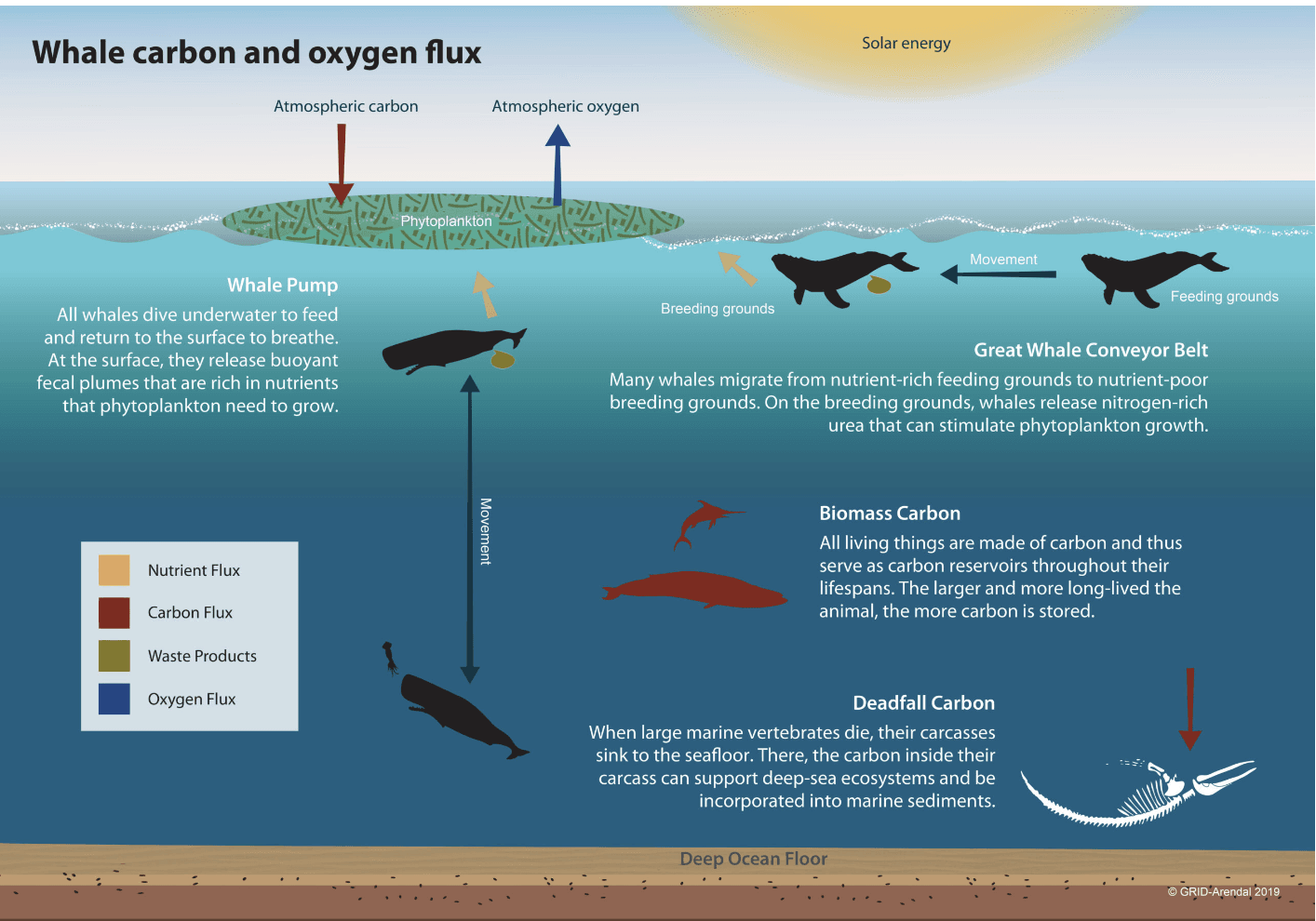Published August 21, 2023
Whales Play an Important Role in the Health of Shorebirds and Ecosystems
Audubon Partners with NOAA for Whale Conservation
By Anne DiMonti, Director of the Audubon Nature Center and Aquarium
A new collaborative effort between NOAA, Stellwagen Bank National Marine Sanctuary, Whale and Dolphin Conservation, Audubon Society of Rhode Island, and the New Bedford Whaling Museum will help to educate boaters, sailors, and whale watch organizations on how to safely navigate waters where whales may be present. The See a Spout, Watch Out! and WhaleSENSE programs offer guidance on how to spot different whale species, interpret whale behavior, and maneuver safely if whales are seen. It also educates on conservation efforts and how to report any sightings of whales in distress to authorized responders.
Did you know that whales play an important role in the health of shorebirds and ecosystems? More than 50% of the air we breathe is produced by oceans – thanks to phytoplankton and the marvels of whale waste. The “Whale Poop Loop” kicks off the food cycle in the ocean. Similar to how plants grow on land, whale poop fertilizes phytoplankton in the ocean which in turn produces oxygen, and is food for zooplankton, fish, and other marine species. These fish then provide food for oceanic and shorebird species. These giant marine mammals are also important in fighting climate change as every whale removes up to 33 tons of carbon from the atmosphere per year (in comparison, a tree removes 40 to 50 tons per year).
North Atlantic Right whales (replicated in a life-size model at the Audubon Nature Center and Aquarium) are one of the most endangered whales in the world, with fewer than 320 left in the ocean. These whales are often referred to as the “canary in the coal mine’ when discussing ecosystem health. Their numbers are on the decline due to climate change and other human impacts. Highlighting whales in Audubon programs educates the public about human impacts on the ecosystem and bring focus to solutions to those issues.
For more information on these collaborative programs, please visit seeaspout.org


















